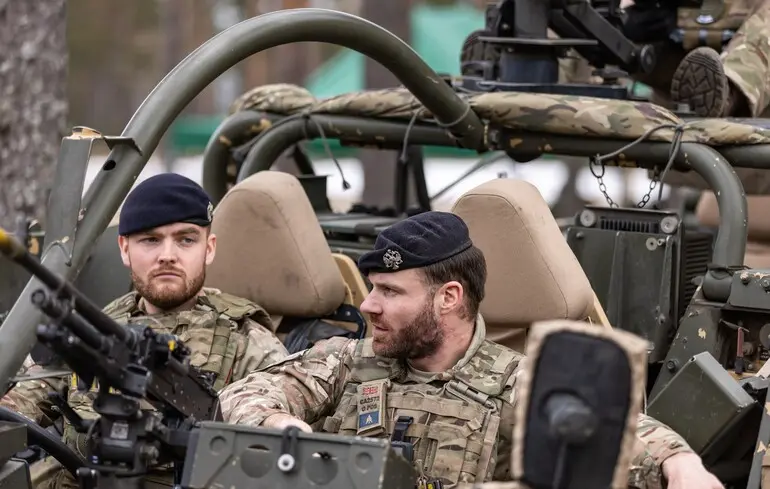UK Abandons Large-Scale Troop Deployment in Ukraine: Alternative Strategies and Implications

Amid the ongoing crisis in Ukraine, the United Kingdom has made a significant decision to refuse the previously considered deployment of 30,000 troops for a peacekeeping mission on Ukrainian soil.
This marks a notable shift in UK policy, as earlier plans included a large contingent aimed at safeguarding strategic assets and ports essential to Ukraine’s security.
Instead, London and its allies are preparing a different, more feasible and strategically justified plan.
The current focus is on patrolling Ukraine’s western airspace, supporting Ukrainian military training, and conducting demining operations in the Black Sea region.
This information is reported by the reputable British publication The Times, shedding light on the UK’s revised approach to the Ukraine crisis.
Simultaneously, concerns are growing within European countries that deploying large military forces to protect key strategic sites could escalate tensions further.
Due to reluctance among some allies to commit substantial military units, dissatisfaction is expressed.
UK Prime Minister Rishi Sunak, during a phone call a few days before the scheduled summit between President Biden and President Putin, announced that Western leaders have made “real progress” toward peace, emphasizing that European allies are prepared to support deployment of stabilization forces after a ceasefire is reached.
Sunak also stressed that “international borders should not and cannot be changed by force.” Despite private concerns about potential agreements that could emerge from upcoming talks, European leaders have cautiously expressed public support for US initiatives, underlining the importance of diplomatic efforts.
Experts suggest that the troop contingent is unlikely to participate directly on the front lines, while the US role remains undefined.
The coalition of willing countries plans to provide logistics, military supplies, and expert support for Ukraine’s military reform, particularly in the western regions less vulnerable to Russian strikes.
Additionally, efforts to patrol Ukraine’s airspace using advanced aircraft like F-35 or Typhoon are planned to deter future attacks and restore international air traffic, thus calming Ukrainian anxieties.
The coalition will also assist in demining the Black Sea to ensure safe passage for commercial vessels headed to Ukrainian ports.
This strategy aligns with broader international support for Ukraine, opposing Russia’s veto against NATO accession and restrictions affecting Ukrainian armed forces.
Meanwhile, countries are assessing the likelihood of deploying a European peacekeeping contingent and defining its mandate, as detailed in Politico’s report “Europe Mobilizes: Who and How Will Send Peacekeepers to Ukraine?”.
Overall, these developments indicate a shift toward more targeted, less ambitious military and diplomatic solutions, underscoring the importance of continued international unity and strategic patience.

